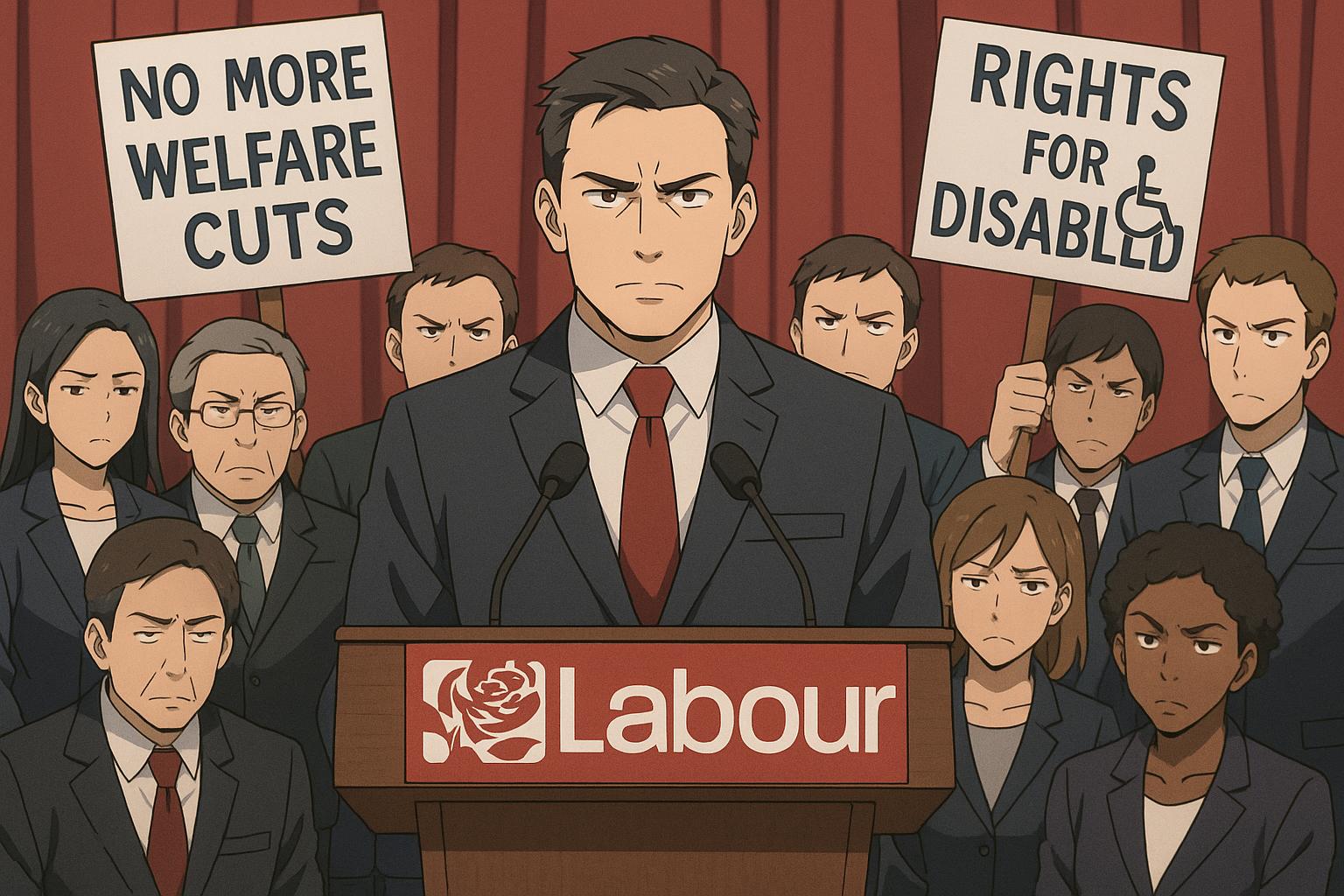Keir Starmer is facing escalating backlash within the Labour Party over his proposed welfare reforms, particularly around cuts to disability payments and winter fuel allowances. As public sentiment shifts due to Labour's lackluster performance in recent local elections, including notable losses to an emerging force on the right, Starmer’s leadership is under severe scrutiny. Dissenting voices within his party are warning that these reforms risk alienating core Labour supporters, especially in the so-called 'Red Wall' constituencies that once solidly backed the party.
At the heart of the controversy is the two-child cap for benefits and plans to tighten access to vital disability payments, specifically the Personal Independence Payment (PIP). The aim is to slash an estimated £5 billion from the welfare budget, but this strategy threatens to impact nearly 800,000 individuals. Disability advocacy groups and Labour backbenchers alike are outraged, with over a hundred MPs reportedly signing a private letter to the chief whip, highlighting the widening rift within the party.
Moreover, alongside the cuts to disability benefits, Labour has modified winter fuel payments—a move initially framed as part of a necessary strategy to tackle a £22 billion budget deficit. Eligibility for winter fuel payments has been restricted primarily to those receiving income-related benefits, which could push an additional 100,000 pensioners into poverty each year. This shift is drawing ire from both party members and the public, raising alarms over its implications for those on fixed incomes struggling with rising living costs.
Chancellor Rachel Reeves has attempted to justify these austerity measures as essential for fiscal stability. Yet, many observers remain unconvinced, particularly in light of Labour’s recent electoral challenges. Internal discussions suggest a potential partial reversal of the winter fuel cuts may occur, with talks of adjusting the income threshold during upcoming budget discussions. However, a complete rollback appears improbable, complicating Starmer's attempts to ensure party unity while balancing fiscal responsibility.
Articles from the Leeds West and Pudsey Constituency Labour Party voiced staunch opposition to the proposed welfare changes, insisting that economic mismanagement shouldn't be shouldered by vulnerable groups. Voices advocating for the party’s traditional ethos of social justice are calling for urgent action to shield those most at risk from the fallout of these policies.
Starmer's efforts to overhaul the welfare system are framed by some party leaders as crucial for modernisation, with Reeves arguing that the existing framework is no longer sustainable. She emphasized the necessity of a welfare model that encourages workforce participation while maintaining fiscal responsibility—a sentiment that can, however, be seen as misaligned with Labour's historical commitment to social support.
As the Labour leadership braces itself for a clash with party members or criticises its own direction, the upcoming parliamentary discussions are set to be crucial. With suggestions that a partial reversal of welfare cuts is essential for regaining public confidence, Starmer faces a precarious challenge in navigating between party unity and the pressing needs of society. As debates unfold, the trajectory of Labour’s welfare policy remains uncertain, stirring both hopes for positive change and fears of further division.
The path that Labour chooses to take could significantly shape its electoral prospects and impact its dedication to its foundational values in the coming years.
Source: Noah Wire Services
